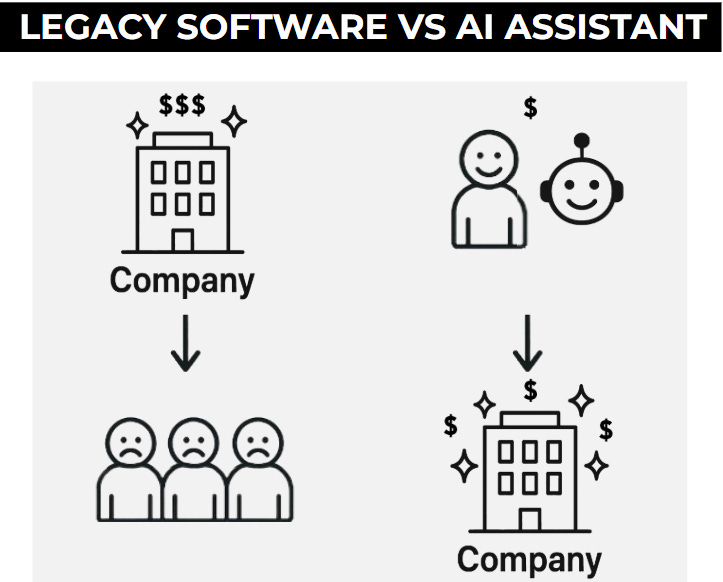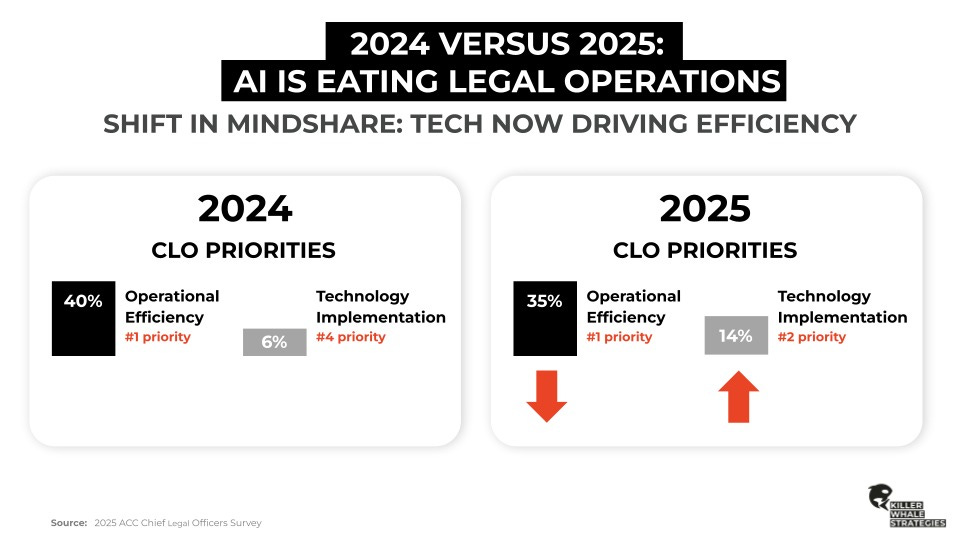The Biggest News at CLOC May Be This No-Show
No, I'm not talking about myself (but I miss you too!)
A year ago at the CLOC Global Institute in Vegas, Robin.ai was the talk of the conference — the "CLOC on the walk," if you will.
This year? They didn’t show up.
And that’s not because they’re doing poorly. Quite the opposite — Robin is crushing it, working with some of the biggest and most sophisticated companies in the world.
But, as I will explain, this is really a sign of the times: AI doesn’t just have legal’s attention. It has the lawyers’ attention.
Hey there, I’m Zach Abramowitz and I’m Legally Disrupted — welcome to the missile-hit-my-airport so I couldn’t make it to Vegas edition. In today’s installment we examine AI’s disruption of CLM and legal operations through the lens of one of the fastest growing legal AI companies: Robin.ai, which has built one of the most robust AI solutions for contracts.
2024: CLM? OK Boomer
At last year’s CGI, Robin.ai made waves by outright dismissing CLM as an outdated concept. The below is a slide I put up at last week’s ILTA EVOLVE in Myrtle Beach.
Their messaging positioned traditional contract lifecycle management platforms as bloated, ineffective and in need of retirement. This isn’t limited to legal, of course. AI natives have been throwing shade at legacy providers like Salesforce and saying that the entire CRM vertical is a walking zombie. But Robin was the first to say it in legal — and they did it from the center of the exhibit floor at CLOC, the actual sacred shrine of CLM.
2025: Is Legal Ops Being Replaced By AI?
This year, I was particularly interested to see what marketing language Robin was going to drop on CLOC, but then I noticed that their name was conspicuously missing from the website. Rather than follow up that very loud statement with another splashy booth or panel, they did something arguably louder: they skipped the show entirely.
But to quote Indigo1 Montoya, skipping CLOC may not mean what you think it means.
I reached out out to Robin’s Lauren Watson (total rising star btw), who told me that the company is doubling down on a different strategy. They’re hosting smaller, owned events — 20 GCs in a room, bootcamp-style — where in-house teams actively test Robin’s AI in live scenarios. These sessions, Watson says, are producing stronger ROI than big tent events.
Now, let me explain why this is a big deal, not just because of Robin, but what I believe it signals about the profession at large: AI has earned the attention of lawyers. According to a recent survey from Law360 AI adoption jumped from 35% to 55% in just one year. The very fact that Robin can create owned events is because there are lawyers who are really focused right now on figuring out how AI can improve their department. Attention may be all you need, AI has made lawyers fall in love. Among frequent users, 94% say AI has made their work better — indicating more than just mere curiosity.
Lawyers haven’t always loved their tech. Over the last ten years, a good amount of the tech that has been foisted upon in house lawyers (especially at bigger companies) came from purchases made by the head of legal operations.
It was hard to get lawyers to care enough about the tech to do the vendor evaluation (so they hired legal ops people to own that), but that didn’t stop the lawyers from complaining or end-arounding the system.
That’s not the case with AI. And why should it be? AI is amazing? I mean, seriously have you used AI? It’s life changing. And I think a lot of lawyers — including GCs and CLOs — are thinking to themselves that all that operational efficiency and process improvement was great but, umm, have you seen AI??? Where will a GC get more value right now? Hiring a legal ops position or getting everyone in the department access to an AI assistant. AI isn’t like legacy software that was essentially built for the company and, in order for it to work, employees had to use it. AI is built for the employees who WANT to use it, but it makes them so productive that it helps the company.
Maybe I’m making too much of this, but it was interesting to note that in 2024, 40% of Chief Legal Officers identified operational efficiency as their top strategic priority, while only 6% considered technology implementation a major concern. By 2025, operational efficiency remained the leading priority, but now only for 35% of CLOs, but interest in technology implementation more than doubled, rising to 14% and becoming the second-highest priority overall.
Is it just me or is technology cutting into legal operations mindshare?
I think it is. Apparently, so does the team at Robin.ai. And you my friends have now been disrupted — legally disrupted.
Apparently it’s Inigo? I’ll own the mistake and leave it as is. Thanks to everyone who messaged me lol







